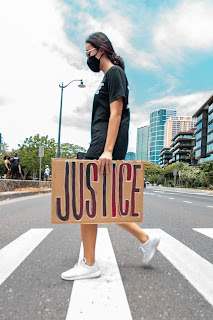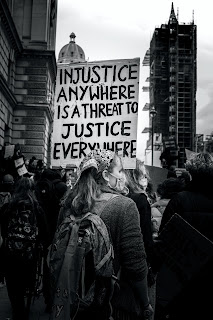Day 6 - Counseling’s call to action
 |
| Photo by Thomas Ashlock on Unsplash |
Day 6 – In 2015, the American Counseling Association (ACA) endorsed The Multicultural and Social Justice Counseling Competencies (MSJCC; Ratts, Singh, Nassar-McMillan, Butler, & McCullough, 2015), in a “call for counselors to ‘develop knowledge of theories that explain how their privileged and marginalized status influences their experiences and worldview’ (p. 5)” (Singh, Appling, & Trepal, 2020, p. 261).
Singh, Appling, and Trepal (2020) outline the importance of counselors developing “a critical consciousness about the power that both counselors and clients hold in the counseling relationship, especially as this power relates to privilege and oppression” (p. 261). They recommend using four theories of multicultural and social justice perspectives to examine assumptions inherent in traditional theories of counseling which reinforce or are rooted within oppressive structures within the larger culture.
Singh, Appling, and Trepal (2020) note “Being historically and culturally situated, all counseling theories may reproduce North American and European colonist ideologies related to power, marginalization, and oppression if not framed and questioned alongside multicultural and social justice competency and commitment” (p. 262).
Are we also teaching expressive arts therapy students to question the ways that theories of expressive arts therapy “reproduce North American and European colonist ideologies related to power, marginalization, and oppression?” Perhaps our marriage with counseling can allow us not only to push against traditional theories of counseling, and the problems these theories have caused in the ways we attempt to “heal” and “help,” but also allow us to reimagine and reconceptualize what our theories can be. I’ve been thinking about the fact that because there are so many more “counselors” and “counseling educators” (more than creative arts therapists and arts therapy educators), there is more being written about these ideas of social justice and decolonization within theory and practice. How might these ideas inform this moment of re-imagining for the arts therapies?
Singh, A. A., Appling, B., & Trepal, H. (2020). Using the multicultural and social justice counseling competencies to decolonize counseling practice: The important roles of theory, power, and action. Journal of Counseling and Development, 98(3), 261–271. https://doi.org/10.1002/jcad.12321



Comments